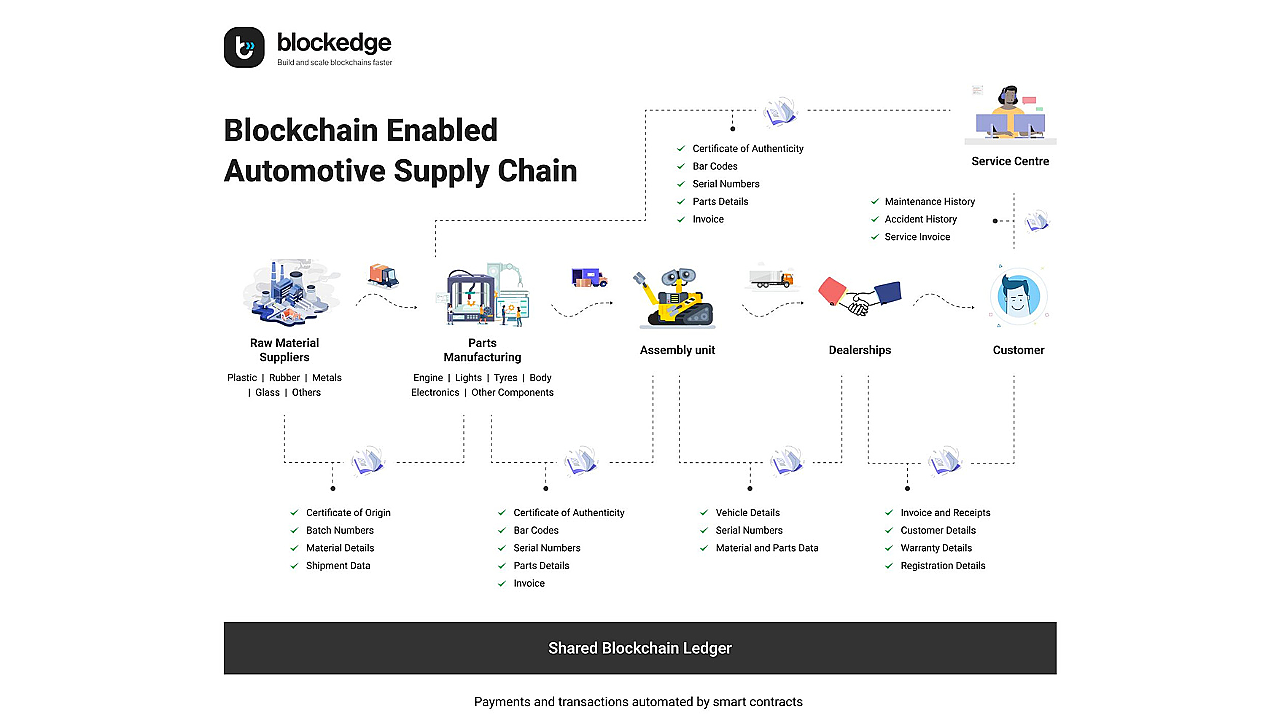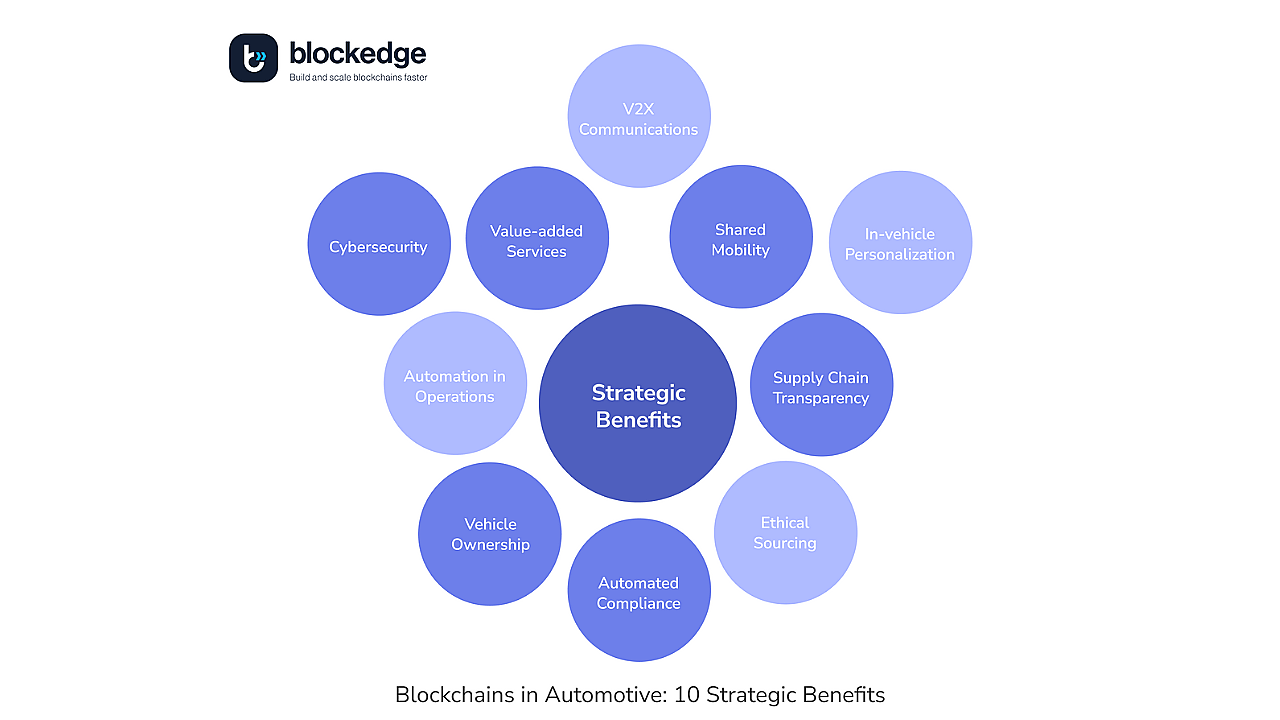
Srinivas Mahankali is currently the Chief Business Officer at Blockedge Technologies. He leads the Blockchain practice for Asia Pacific Region for a native Cloud specialist company and its subsidiary — SecureKloud Technologies and Blockedge Technologies Inc. He is an alumnus of IIT Madras and IIM Bangalore and is an experienced top management professional with over 30 years of experience. Previously, he worked as a Lead Consultant for Blockchain, and emerging technologies at the Government of India and NASSCOM promoted company National Institute for Smart Government.
Can you briefly tell us how Blockedge helps organisations build and integrate blockchain technologies?
Blockedge is a blockchain infrastructure automation platform to manage blockchain consortium applications directly from the user interface. The Blockchain-as-a-Service (BaaS) platform provides zero-code blockchain launch automation and ensures hassle-free integration with existing systems.
Blockedge also offers consulting and advisory services for a seamless blockchain-enabled transformation. With this end-to-end platform, organisations can easily build, govern, and grow enterprise blockchain solutions as their business evolves.
We break down the complexities in blockchain technology and make it easy for you to control the blockchain network through our user-friendly dashboard for BaaS solutions. Besides, we help in integrating their existing legacy applications for the companies.
How will this benefit organisations in optimising their operations and resources?
It will help the companies in multiple ways while adopting blockchain. Firstly, it will eliminate the middlemen as the organisations can adopt blockchain without depending on third parties and further invest in manpower. Secondly, it will free up resources and thus cut down costs. Overall, it will improve productivity.
The blockchain transformation through the platform will reduce the required time by 80%, as it can be done with just a few clicks. Besides, it will bring down costs by nearly 70%. Overall output will be increased for any company, and organisations can scale up their business and architecture with ease.
Can you explain what is elastic blockchain and how it helps your clients?
In a broader sense, this is just another scalable blockchain application. We can scale up the size and processes, leveraging the cloud potential. They also work with secure nodes. It is an open-source and decentralised blockchain solution mainly for cryptocurrency.
Can Blockedge help customers ensure data security?
Blockedge is customisable to adhere to industry-specific compliances, security protocols, and organisation-level policy management. Our automated version updates, and periodic patch rollouts for the underlying software, ensures continuous compliance and best data security practices.
Moreover, we are a cloud-native company, and security is ingrained in our DNA. We have over a decade of experience working with several fortune 500 companies in a highly security-compliant environment. We have worked in highly regulated markets like the US and Europe and highly regulated sectors like healthcare and pharma.
Besides, we have all the latest and advanced security certifications required. That stamps out any security concern. So, there is no cause to worry about security when the organisations adopt the Blockedge platform.
Which are the industrial segments that can embrace Blockchain technologies?
All industrial segments can adopt blockchain through this platform. We have identified 17 industries, including supply chain, automotive, pharma & healthcare, BFSI, insurance, education, real estate, cargo & logistics, NFT, arts, media, energy, etc. Besides, we can cater to the public sector, including the governments, citizen services, CBDC, telecom, agriculture, land records, etc. Our Blockedge platform is industry agnostic and is helpful across the board.
What is your experience with blockchain technologies in the automotive industry across OEMs and suppliers?
The automotive industry will be one of the main beneficiaries of this new technology, as it can address the multiple challenges faced by the industry. More than just being mobility modes, automobiles are becoming mobile data centres with integrated processors and sensors, providing on-demand and personalised services. This means more real-time accurate data would be generated, and what better platform than blockchain can ensure secure and traceable transactions.
The blockchain is transforming the way the automotive business is functioning.
One of the biggest gains is about OEMs and suppliers. The tracking of parts is easier, smoother and transparent with the help of blockchain. The most important factor is that it can weed out spurious or fake auto parts from the supply chain. Thus, it improves the automotive supply chain efficiency in a big way. It can improve safety and data security. Transparent logging of data and keeping authentic black box records are also ensured.

In the case of new product development, can this technology help contain the time to market?
We have seen how pharmaceutical companies collaborated and made drug development faster. Instead of working for 20 years to launch a drug, they could do it in a few years.
Similarly, in the automotive industry, by employing end-to-end data governance, blockchain eliminates the risks surrounding privacy, and companies can easily collaborate and get the most out of their data assets, while upholding compliance and security standards.
With the help of Blockedge, companies can transform their accumulated data into actionable business intelligence while utilising the built-in analytics tools ecosystem. All the while, the data is housed in a protected platform that safeguards all participants’ privacy in a multi-tenant environment.
Collaboration with peers has proved to be the biggest spur of innovation and product development. That is the potential blockchain will offer other industries to accelerate product development.
Can you help us understand how blockchain applications act as digital enablers of connected, autonomous and electric vehicles?
Connected vehicles are equipped with internal and external software, sensors, IoT devices, applications, services, and technologies through WLAN, Bluetooth, 4G/5G, WiFi, etc., for communication. They are connected in multiple ways with other vehicles, pedestrians, the cloud and infrastructure, and data is the key.
Blockchain is vital in securing, analysing, distributing and processing data. Similarly, automated vehicles use cell technology, ultrasonic sensors, cameras, GPS signals, radar, short-range radio, and computers. The future is going to be self-driving cars which will be further advanced with technologies. In these cases, too, blockchain will be the key enabler.

With electronics in vehicles, especially passenger cars, crossing over 55% of the total content, do you see blockchain technologies playing a role?
With a focus on reducing carbon emissions, more people are going for EVs, which will account for a higher share of vehicles on the roads in future. Blockchain has several use cases in the automotive industry, and EV is one of the prominent among them. It can help in protecting autonomous cars from malicious hackers by providing access to authorised owners.
Blockchain-enabled tracking makes tracing possible in an immutable and transparent environment, eliminating spurious spare parts. Manufacturers can recall vehicles when needed in a speedy manner in case of extraordinary circumstances. Blockchain can help in meeting regulatory compliance requirements.
Secondly, charging is one of the main challenges for EVs as there are insufficient charging stations. Blockchain comes in handy in finding charging stations, analysing battery levels, and power trading, which means one can share EV chargers with others in need or enable charging after vetting driver credentials and financial exchanges.
Another advantage would be when someone buys a used EV. Blockchain-based applications help vendors to record and pass on all relevant details on accessories and usage of such cars. So, it becomes easier for the buyer to make a purchase decision.
How will this technology support the aftermarket in terms of stock availability, stock keeping units and response time to customers?
The gains of blockchain platforms like Blockedge are manifold, covering manufacturers, dealers, consumers and other stakeholders like insurance and banking partners. The automotive supply chain will connect all stakeholders, from manufacturers to consumers, sharing data securely and transparently with the help of blockchain. This will keep a tab on demand-supply situations, which will help them plan accordingly.
Customers can safely keep ownership and maintenance history. Recalling and changing parts will be easier. There will be increased trust in the market and a higher customer experience. So, blockchain plays a vital role in the post-sales segment too.
Can you tell us about the growing awareness of carbon emissions and electronic waste pushing cloud adoption?
There is a higher awareness of green energy and the urgency to reduce carbon emissions. The automotive industry is one of the highest contributors towards emissions. There is a growing awareness on the need for renewable and sustainable energy.
New technologies like cloud and blockchain contribute to clean energy by facilitating renewable energy trading, carbon credit exchange process, saving paper usage, and cutting down electronic waste. Moreover, less physical infrastructure means less electronic waste. Blockchain-powered by Cloud, AI & ML, data analytics, and related technologies is the biggest intervention in this.